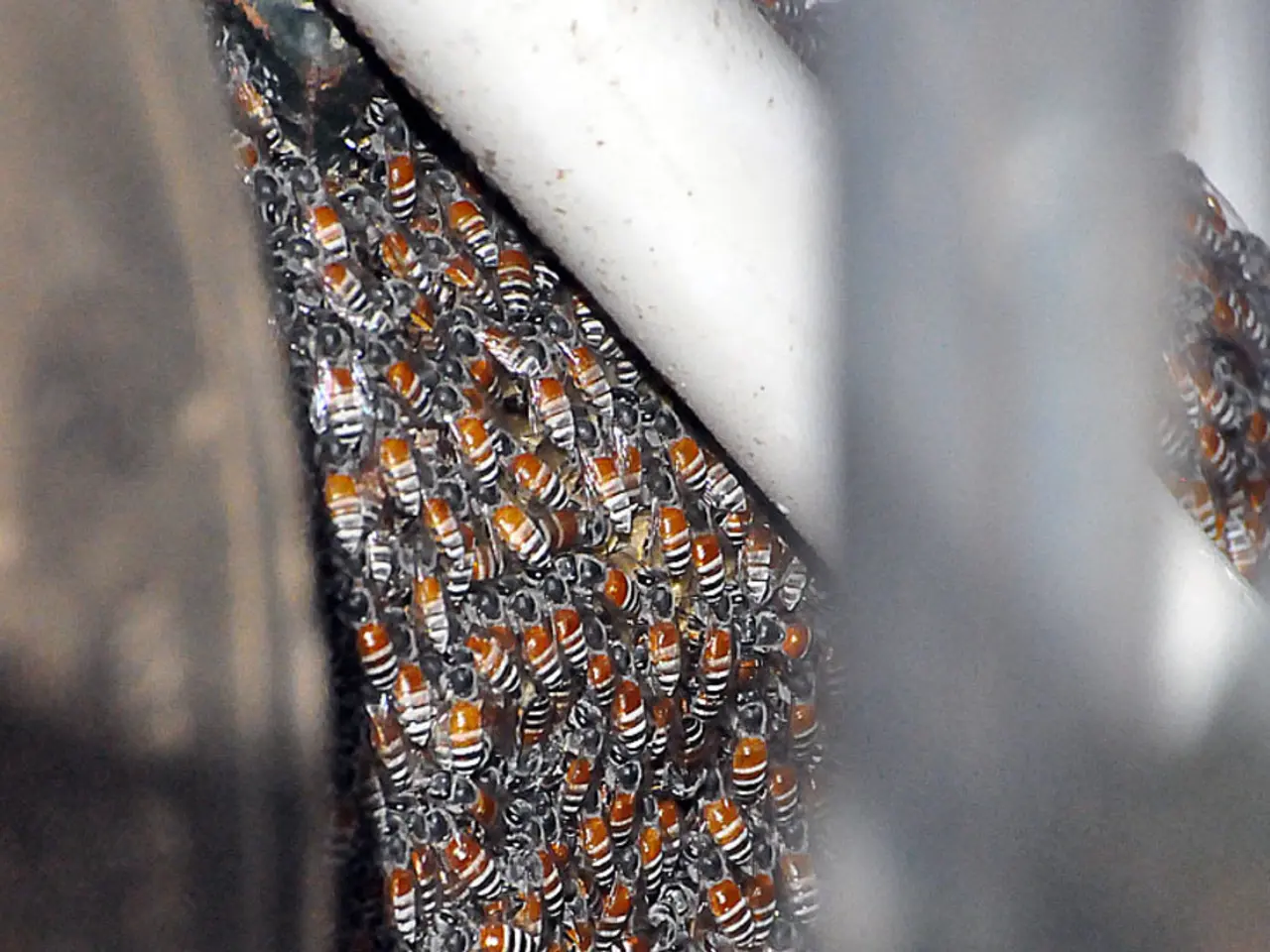Women's genital warts: Signs, root causes, and remedies
Genital warts, a sexually transmitted infection (STI) caused by the human papillomavirus (HPV), are a common concern for many people. Here's what you need to know about genital warts, their causes, symptoms, and prevention.
The most common types of HPV that cause genital warts, but do not lead to cancer in females, are HPV types 6 and 11. These types are responsible for about 90% of genital wart cases and are considered low-risk for cancer[2][4][5]. In contrast, HPV types 16 and 18 are high-risk and can cause cell changes that may lead to cancers of the cervix, vulva, anus, or penis, but are not primarily associated with the development of visible genital warts[4].
Genital warts tend to look like small, fleshy bumps or growths. Clusters of genital warts may develop in a formation that resembles a cauliflower. These warts can cause symptoms such as itching, burning, tenderness or pain, bleeding, and discomfort. They can also appear on the lips, mouth, and throat due to oral sex.
For those who have genital warts, it is essential to see a healthcare professional for diagnosis and potential treatment. A healthcare professional can diagnose genital warts through a physical examination, and may use a colposcope or apply a vinegar solution to the genital area to see the warts better.
Topical treatments for genital warts include podofilox, imiquimod, podophyllin, and trichloroacetic acid. For people with larger or more difficult-to-treat warts, removal methods may be recommended, such as cryotherapy, surgical excision, electrocautery, laser therapy, or freezing off the warts with liquid nitrogen.
Prevention is key when it comes to genital warts. The HPV vaccination can help protect against genital warts and cervical cancer, and is recommended for all children at 11 or 12 years of age, and for all females aged 13-26 years. The FDA has approved the HPV vaccine for people aged 9-45 years.
It's important to note that anyone who is sexually active is at risk of an HPV infection, with other risk factors including smoking, having a weakened immune system, and being under the age of 30. Wearing a condom during sex can help lower the risk of transmission but does not completely prevent it.
The U.S. Preventive Services Task Force recommends cervical screenings every 3 years for females aged 21-29, and every 3 years or every 5 years with an HPV test for females aged 30-65. Pregnant women with a history of genital warts should inform their healthcare providers, as it is unlikely to cause pregnancy complications or affect the baby.
Anyone with severe allergies or an allergy to yeast should consult their doctor before getting the vaccine. Stopping smoking can lower the risk of getting genital warts. Pregnant women should not receive the HPV vaccine.
In summary, genital warts can be uncomfortable and worrying, but understanding their causes, symptoms, and prevention can help put your mind at ease. If you notice any unusual growths or symptoms, seek the advice of a healthcare professional.
Health and wellness, particularly sexual health, are essential for everyone, especially women. Regular check-ups are necessary for early detection and treatment of conditions such as genital warts, a sexually transmitted infection caused by Human Papillomavirus (HPV). The HPV vaccine, which helps protect against genital warts and cervical cancer, is recommended for children aged 11-12 and those between 13-26 years old. However, anyone who is sexually active is at risk of an HPV infection, with other factors like smoking, having a weakened immune system, and being under the age of 30 increasing the risk. Prevention is key, and appropriate healthcare professionals can provide guidance on diagnosis, treatment, and prevention methods for genital warts, including topical treatments and removal methods. It's also important to note that cervical screenings are recommended for females aged 21-65 to detect any potential cervical cancer.




